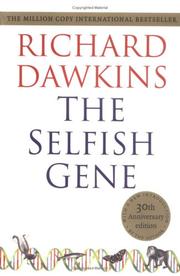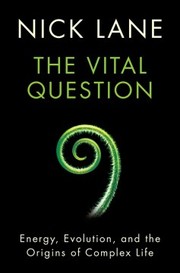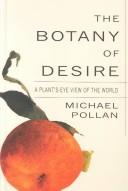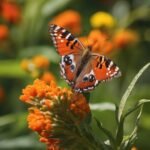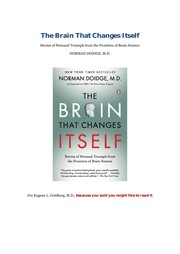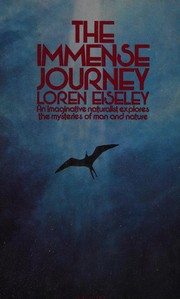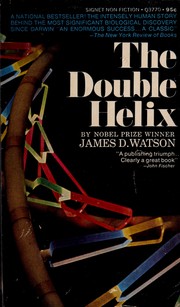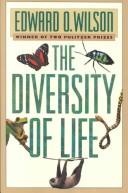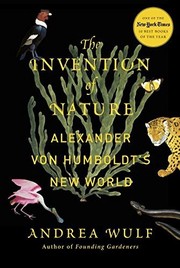If you’re fascinated by the wonders of the natural world and the complexities of life, then delving into a book on biology is a must. Whether you’re a student, a science enthusiast, or just someone with a curious mind, the world of biology books offers a wealth of knowledge waiting to be explored. From the intricacies of genetics to the marvels of ecosystems, there’s a book on biology out there for everyone. In this article, we’ve curated a list of the 20 best books about biology that will both educate and inspire you. Get ready to embark on a journey through the captivating realm of life sciences!
Contents
- 1 20 Best Biology Books
- 2 The Gene: An Intimate History
- 3 The Hidden Life of Trees: What They Feel, How They Communicate
- 4 Sapiens: A Brief History of Humankind
- 5 The Immortal Life of Henrietta Lacks
- 6 The Sixth Extinction: An Unnatural History
- 7 The Emperor of All Maladies: A Biography of Cancer
- 8 The Selfish Gene
- 9 The Vital Question: Energy, Evolution, and the Origins of Complex Life
- 10 The Botany of Desire: A Plant’s-Eye View of the World
- 11 The Origin of Species
- 12 The Brain that Changes Itself: Stories of Personal Triumph from the Frontiers of Brain Science
- 13 The Hot Zone: The Terrifying True Story of the Origins of the Ebola Virus
- 14 The Immense Journey: An Imaginative Naturalist Explores the Mysteries of Man and Nature
- 15 The Double Helix: A Personal Account of the Discovery of the Structure of DNA
- 16 The Man Who Knew Infinity: A Life of the Genius Ramanujan
- 17 The Wild Life of Our Bodies: Predators, Parasites, and Partners That Shape Who We Are Today
- 18 The Diversity of Life
- 19 The Invention of Nature: Alexander von Humboldt’s New World
- 20 The Tangled Tree: A Radical New History of Life
- 21 The Hidden Half of Nature: The Microbial Roots of Life and Health
- 22 Final Thoughts on Best Biology Books
- 23
20 Best Biology Books
The Gene: An Intimate History
by Siddhartha Mukherjee
The Gene: An Intimate History by Siddhartha Mukherjee is an enthralling exploration of the complex and captivating world of genetics. This meticulously researched book delves into the history of genetics, from the discovery of the gene to the latest breakthroughs in genetic science. Mukherjee skillfully weaves together scientific discoveries, personal stories, and ethical dilemmas to create a compelling narrative that is both informative and thought-provoking.
Through captivating storytelling, Mukherjee illuminates the profound impact that genes have on our lives, our health, and our understanding of what it means to be human. The Gene is a deeply insightful and accessible biology book that offers a fascinating glimpse into the inner workings of our genetic code, making it an essential read for anyone interested in the intricate workings of life itself.
The Hidden Life of Trees: What They Feel, How They Communicate
by Peter Wohlleben
The Hidden Life of Trees: What They Feel, How They Communicate by Peter Wohlleben is a fascinating book about the secret world of trees. This captivating biology book delves into the intricate ways in which trees communicate, care for each other, and form complex social networks. Wohlleben, a forester, shares his deep understanding of trees and forests, revealing their surprising abilities and behaviors.
Readers will be amazed to discover how trees can sense their environment, communicate with each other through underground fungal networks, and even care for sick or injured trees. The book provides a new perspective on the natural world, showing that trees are not just silent, stationary beings, but rather active, interconnected, and responsive organisms.
Whether you are a nature enthusiast, a scientist, or simply curious about the wonders of the natural world, The Hidden Life of Trees offers a thought-provoking and insightful journey into the hidden world of trees.
Sapiens: A Brief History of Humankind
by Yuval Noah Harari
Sapiens: A Brief History of Humankind by Yuval Noah Harari is an enthralling exploration of the history of Homo sapiens, delving into the biological, cultural, and cognitive evolution that has shaped the human species. This captivating book on biology delves into the origins of Homo sapiens and their eventual dominance over the planet, examining the key developments and revolutions that have propelled humanity to its current global prominence.
Harari offers a thought-provoking perspective on the history of humankind, weaving together insights from biology, anthropology, and history to provide a comprehensive understanding of our species’ journey. Through engaging storytelling and meticulous research, the book about biology offers a compelling narrative that challenges readers to reconsider their perceptions of human history and the forces that have shaped our modern world.
Whether you’re a biology enthusiast, history buff, or simply curious about the story of humanity, Sapiens is a must-read that will leave you with a deeper appreciation for the intricate web of biological and cultural factors that have contributed to our species’ remarkable success.
The Immortal Life of Henrietta Lacks
by Rebecca Skloot
The Immortal Life of Henrietta Lacks by Rebecca Skloot is a captivating biology book that delves into the fascinating and controversial story of Henrietta Lacks, a poor African-American woman whose cells were taken without her knowledge and became one of the most important tools in medicine. Skloot skillfully intertwines the history of cell culture and medical research with the personal story of Henrietta and her family, creating a compelling narrative that is both informative and emotionally engaging.
Through extensive research and interviews with Henrietta’s family, Skloot explores the ethical implications of using Henrietta’s cells for scientific research, as well as the impact it had on her descendants. The book also sheds light on the development of important medical breakthroughs and the profound influence Henrietta’s cells had on biology and medicine.
The Immortal Life of Henrietta Lacks is a thought-provoking and thoughtfully written book about biology that raises important questions about ethics, race, and the intersection of science and human rights.
The Sixth Extinction: An Unnatural History
by Elizabeth Kolbert
The Sixth Extinction: An Unnatural History by Elizabeth Kolbert is a captivating book on biology that explores the concept of mass extinction and its impact on the planet. Kolbert takes readers on a journey through time, examining the five previous extinction events and how they have shaped the world as we know it. From the disappearance of the dinosaurs to the current biodiversity crisis, she delves into the causes and consequences of these cataclysmic events.
Through meticulous research and compelling storytelling, Kolbert sheds light on the devastating effects of human activity on the natural world, making a compelling case for the urgent need for conservation and preservation. Her vivid descriptions and thought-provoking insights offer a sobering look at the interconnectedness of life on Earth and the precarious balance that sustains it. The Sixth Extinction is a thought-provoking book about biology that challenges readers to consider their role in the future of our planet.
The Emperor of All Maladies: A Biography of Cancer
by Siddhartha Mukherjee
The Emperor of All Maladies: A Biography of Cancer by Siddhartha Mukherjee is a captivating and comprehensive book on the history, biology, and treatment of cancer. This Pulitzer Prize-winning work delves into the complex and evolving understanding of cancer, exploring its origins, impact, and the tireless efforts to conquer it.
Mukherjee skillfully weaves together scientific research, personal stories, and historical context to create a compelling narrative that sheds light on the profound impact of this disease. The book takes readers on a journey through the centuries, from the earliest recorded cases of cancer to the groundbreaking discoveries and advancements in modern medicine.
Through Mukherjee’s engaging storytelling, readers gain a deeper understanding of the biological mechanisms that drive cancer, the challenges of diagnosis and treatment, and the ongoing quest for a cure. The Emperor of All Maladies offers a thought-provoking and insightful look at the history and future of cancer research and treatment, making it a must-read for anyone interested in this vital area of science.
The Selfish Gene
by Richard Dawkins
The Selfish Gene by Richard Dawkins is a groundbreaking book on biology that explores the concept of evolution from a gene’s perspective. Dawkins argues that genes are the fundamental unit of natural selection, and their selfish drive to replicate and survive shapes the behavior and traits of organisms. Through vivid examples and compelling explanations, the book delves into the intricate mechanisms of genetics and how they drive the diversity of life on Earth.
This biology book challenges the traditional view of evolution as solely benefiting the individual organism, and instead presents a compelling case for the central role of genes in driving the process. Dawkins’ engaging writing style and thought-provoking ideas have made The Selfish Gene a classic in the field of evolutionary biology, captivating readers with its fresh perspective and insightful analysis. Whether you’re a science enthusiast or simply curious about the forces shaping life as we know it, The Selfish Gene is a must-read for anyone interested in delving into the complexities of evolution.
The Vital Question: Energy, Evolution, and the Origins of Complex Life
by Nick Lane
The Vital Question by Nick Lane is a captivating book on biology that delves into the fundamental question of how life on Earth evolved to become so complex. Lane explores the origins of life and the role that energy has played in driving the evolution of complex organisms. Through a combination of scientific research and thought-provoking analysis, Lane uncovers the crucial role that energy production and consumption have played in the development of life. He discusses the origins of life, the evolution of cells, and the symbiotic relationship between mitochondria and the cells they inhabit. Lane’s exploration of the connection between energy and evolution provides a compelling perspective on the origins of complex life on Earth. Whether you’re a science enthusiast or a curious reader seeking to understand the mysteries of life, this biology book offers a fascinating journey into the depths of evolutionary biology.
The Botany of Desire: A Plant’s-Eye View of the World
by Michael Pollan
The Botany of Desire: A Plant’s-Eye View of the World by Michael Pollan is a captivating biology book that explores the fascinating relationship between humans and four plants: apples, tulips, cannabis, and potatoes. Through engaging storytelling and thorough research, Pollan delves into the ways in which these plants have shaped human desires and behaviors throughout history.
With a unique perspective, the book examines how plants have wielded their influence on human culture, evolution, and even genetic engineering. Pollan takes readers on a thought-provoking journey, exploring the interconnectedness of humans and the plant world, and the reciprocal impact this relationship has had on both parties.
The Botany of Desire offers a fresh and insightful look at the co-evolution of plants and humans, challenging readers to reconsider their understanding of the natural world. This book on biology is a must-read for anyone interested in the intersection of nature and human society, and how our desires have shaped the biological world around us.
The Origin of Species
by Charles Darwin
The Origin of Species by Charles Darwin is a groundbreaking book on biology that revolutionized our understanding of the natural world. In this seminal work, Darwin presents his theory of evolution through natural selection, challenging the prevailing beliefs about the origin of species. Through meticulous observation and analysis, he provides compelling evidence for the idea that all living organisms have descended from a common ancestor and have gradually evolved over time.
This book about biology sparked intense debate and controversy when it was first published in 1859, and its impact continues to be felt today. Darwin’s eloquent and persuasive writing style makes the complex concepts of evolution accessible to a wide audience, and his meticulous research and compelling arguments have earned this biology book a lasting place in the annals of scientific literature. The Origin of Species is not only a milestone in the history of science, but also a testament to the power of curiosity, critical thinking, and the relentless pursuit of knowledge.
The Brain that Changes Itself: Stories of Personal Triumph from the Frontiers of Brain Science
by Norman Doidge
The Brain that Changes Itself: Stories of Personal Triumph from the Frontiers of Brain Science by Norman Doidge is a fascinating book on neuroplasticity. Doidge explores the incredible ability of the brain to rewire and adapt, challenging the long-held belief that the brain is static and unchangeable. Through a series of captivating stories and case studies, Doidge introduces readers to individuals who have overcome neurological challenges through the power of neuroplasticity.
The book delves into the groundbreaking research and discoveries in the field of neurobiology, shedding light on the potential for rehabilitation and healing in the brain. Doidge’s engaging narrative style makes complex scientific concepts accessible and relatable, making this a must-read for anyone interested in the biology of the brain.
Whether you’re a student of neuroscience or simply curious about the potential of the human brain, The Brain that Changes Itself offers a captivating journey into the remarkable world of neurological plasticity.
The Hot Zone: The Terrifying True Story of the Origins of the Ebola Virus
by Richard Preston
The Hot Zone: The Terrifying True Story of the Origins of the Ebola Virus by Richard Preston is a gripping biology book that delves into the heart-stopping world of deadly viruses. Preston takes readers on a journey into the origins of the Ebola virus, exploring its terrifying impact on the human body and the devastating consequences of its outbreak. The book provides a chilling account of the real-life experiences of scientists and doctors who risked their lives to contain the deadly virus, offering a fascinating insight into the world of virology and the battle against deadly pathogens.
With its intense and suspenseful narrative, The Hot Zone is a must-read for anyone interested in the biology of viruses and the real-life stories behind some of the world’s most deadly diseases. Preston’s storytelling prowess and meticulous research make this book about biology a truly captivating and eye-opening read, shedding light on the terrifying world of infectious diseases and the brave individuals who work tirelessly to combat them.
The Immense Journey: An Imaginative Naturalist Explores the Mysteries of Man and Nature
by Loren Eiseley
The Immense Journey is a captivating exploration of the wonders of the natural world by the imaginative naturalist, Loren Eiseley. This profound book delves into the mysteries of man and nature, taking readers on a thought-provoking journey through the realms of biology, anthropology, and philosophy. Eiseley’s lyrical prose and keen observations transport readers to ancient landscapes, where they witness the interconnectedness of all living things.
This biology book offers a unique perspective on the evolution of life and the intricate web of relationships that shape the world around us. Through Eiseley’s elegant storytelling, readers are invited to ponder the origins of human consciousness, the beauty of the natural world, and the enigmatic forces that drive life’s perpetual dance.
With its blend of scientific insight and poetic reflection, The Immense Journey is a timeless exploration of the mysteries of existence, making it a must-read for anyone with a fascination for the interconnectedness of life and the wonders of the natural world.
The Double Helix: A Personal Account of the Discovery of the Structure of DNA
by James D. Watson
The Double Helix is a captivating book about biology that provides a personal account of the groundbreaking discovery of the structure of DNA. Written by James D. Watson, one of the key scientists involved in the discovery, this book offers a unique and intimate insight into the world of scientific research and the competitive nature of the scientific community in the 1950s. Watson’s narrative is filled with intriguing details about the challenges, setbacks, and triumphs that he and his colleagues faced during their quest to unlock the secrets of DNA.
Readers are taken on a thrilling journey through the world of molecular biology as Watson describes the race to uncover the double helix structure and the intense rivalry between research groups. The book provides a gripping portrayal of the scientific process, the personalities involved, and the momentous impact of this discovery on the field of genetics. The Double Helix is a must-read for anyone interested in science, genetics, or the fascinating story behind one of the most significant breakthroughs in biology books.
The Man Who Knew Infinity: A Life of the Genius Ramanujan
by Robert Kanigel
The Man Who Knew Infinity: A Life of the Genius Ramanujan by Robert Kanigel is a captivating biography that delves into the extraordinary life of Srinivasa Ramanujan, a self-taught mathematician who made groundbreaking contributions to the field of mathematics. Kanigel skillfully weaves together Ramanujan’s personal struggles, his remarkable insights, and the impact of his work on the mathematical world. The book takes readers on a journey through Ramanujan’s early life in India, his collaboration with the famous mathematician G.H. Hardy, and his enduring legacy in the world of mathematics.
With meticulous research and engaging storytelling, Kanigel brings Ramanujan’s story to life, offering a vivid portrayal of his genius and the challenges he faced as an outsider in the mathematical community. The Man Who Knew Infinity is a must-read for anyone interested in the intersection of brilliance, perseverance, and the human spirit. It’s a captivating exploration of the life of a mathematical prodigy whose work continues to inspire and influence mathematicians to this day.
The Wild Life of Our Bodies: Predators, Parasites, and Partners That Shape Who We Are Today
by Rob Dunn
The Wild Life of Our Bodies: Predators, Parasites, and Partners That Shape Who We Are Today by Rob Dunn is a captivating biology book that explores the intricate relationship between humans and the natural world. Dunn delves into the evolutionary history of our species, revealing how our bodies have been shaped by interactions with predators, parasites, and other organisms. From the role of parasites in shaping our immune systems to the impact of modern lifestyles on our microbiomes, Dunn presents a thought-provoking look at the ways in which our health and well-being are intertwined with the broader ecosystem.
Through engaging storytelling and insightful scientific research, Dunn offers a fresh perspective on the book about biology, highlighting the interconnectedness of all living things and the profound influence of the natural world on human evolution. Whether you’re a biology enthusiast or simply curious about the hidden forces that have shaped human biology, The Wild Life of Our Bodies is a must-read that will change the way you think about your place in the world.
The Diversity of Life
by Edward O. Wilson
The Diversity of Life by Edward O. Wilson is a captivating biology book that delves into the intricate world of biodiversity. In this thought-provoking work, Wilson explores the vast array of life forms that inhabit our planet and the complex ecosystems that support them. Through compelling narratives and insightful analysis, the author sheds light on the importance of preserving the richness of life on Earth. Wilson’s expertise as a renowned biologist and his passion for the natural world are evident throughout the book, making it a compelling read for anyone interested in the wonders of the natural world.
With a keen eye for detail and a deep understanding of ecological principles, Wilson takes readers on a journey through the diverse landscapes and habitats that make up our planet. From the smallest microorganisms to the grandeur of rainforests and coral reefs, The Diversity of Life offers a comprehensive exploration of the interconnected web of life. This book on biology is a testament to the beauty and complexity of the natural world, and a powerful call to action for conservation and environmental stewardship.
The Invention of Nature: Alexander von Humboldt’s New World
by Andrea Wulf
The Invention of Nature: Alexander von Humboldt’s New World by Andrea Wulf is a captivating biography of the extraordinary scientist and explorer, Alexander von Humboldt. This groundbreaking book delves into the life and adventures of the man who transformed the way we understand the natural world. Humboldt’s insatiable curiosity and groundbreaking research in the 18th and 19th centuries laid the foundation for modern environmentalism and ecology. Wulf’s vivid storytelling and meticulous research bring to life Humboldt’s expeditions through South America, his encounters with indigenous cultures, and his revolutionary ideas about the interconnectedness of nature. This is not just a book on biology; it’s a riveting tale of exploration, discovery, and the birth of environmental science. Wulf’s narrative skillfully weaves together history, science, and biography, making The Invention of Nature a compelling read for anyone interested in the natural world and the remarkable individuals who shaped our understanding of it.
The Tangled Tree: A Radical New History of Life
by David Quammen
The Tangled Tree: A Radical New History of Life by David Quammen is a captivating and thought-provoking book on biology that challenges our traditional understanding of the tree of life. Quammen takes readers on a fascinating journey through the world of molecular biology, introducing them to the groundbreaking discoveries that have revolutionized our understanding of evolutionary relationships. Through engaging storytelling and in-depth research, he explores the interconnectedness of all living organisms and the ways in which horizontal gene transfer has shaped the diversity of life on Earth. This biology book delves into the complexities of evolutionary history, offering a fresh perspective on the relationships between species and the mechanisms driving genetic diversity. With its compelling narrative and insightful analysis, The Tangled Tree is a must-read for anyone interested in the intricate and interconnected web of life that defines our planet.
The Hidden Half of Nature: The Microbial Roots of Life and Health
by David R. Montgomery and Anne Biklé
The Hidden Half of Nature is a fascinating exploration of the symbiotic relationship between humans and the microbial world. Written by David R. Montgomery and Anne Biklé, this captivating biology book takes readers on a journey through the soil beneath our feet and the microbiome within our bodies. Through engaging storytelling and scientific insight, the authors reveal the profound impact that microbes have on our health, agriculture, and environment.
Montgomery and Biklé skillfully blend personal anecdotes with cutting-edge research to shed light on the interconnectedness of all living things. They demonstrate how nurturing the microbial diversity in our soil and gut can lead to healthier ecosystems and individuals. This eye-opening book about biology challenges traditional views of nature and health, offering a fresh perspective on the importance of microbial communities.
Whether you’re a biology enthusiast or simply curious about the hidden world of microbes, The Hidden Half of Nature is a must-read that will leave you with a newfound appreciation for the microbial roots of life and health.
Final Thoughts on Best Biology Books
There you have it – the top 20 best books about Biology that every enthusiast should have on their shelves. Whether you’re interested in genetics, evolution, ecology, or any other aspect of the biological sciences, these books offer a wealth of knowledge and insight. From classics to contemporary works, there’s something for everyone in this diverse list. So, dive in and explore the fascinating world of biology through these remarkable reads!
Which book about Biology is best?
The best book on Biology can vary with personal preference, but three widely recommended titles are:
- The Gene: An Intimate History by Siddhartha Mukherjee,
- The Hidden Life of Trees: What They Feel, How They Communicate by Peter Wohlleben,
- Sapiens: A Brief History of Humankind by Yuval Noah Harari.
Each offers valuable insights and could be a great starting point.
What are the best books to learn about Biology?
For those looking to learn about Biology, there is a wealth of literature that can provide a comprehensive understanding of the subject. Some of the most highly recommended books include:
- The Gene: An Intimate History by Siddhartha Mukherjee,
- The Hidden Life of Trees: What They Feel, How They Communicate by Peter Wohlleben,
- Sapiens: A Brief History of Humankind by Yuval Noah Harari,
- The Immortal Life of Henrietta Lacks by Rebecca Skloot,
- The Sixth Extinction: An Unnatural History by Elizabeth Kolbert,
- The Emperor of All Maladies: A Biography of Cancer by Siddhartha Mukherjee,
- The Selfish Gene by Richard Dawkins,
- The Vital Question: Energy, Evolution, and the Origins of Complex Life by Nick Lane,
- The Botany of Desire: A Plant’s-Eye View of the World by Michael Pollan,
- The Origin of Species by Charles Darwin
These books offer a range of perspectives on Biology, covering various aspects and approaches to the subject.
What are the best books about Biology?
The best books about Biology are:
- The Gene: An Intimate History by Siddhartha Mukherjee,
- The Hidden Life of Trees: What They Feel, How They Communicate by Peter Wohlleben,
- The Brain that Changes Itself: Stories of Personal Triumph from the Frontiers of Brain Science by Norman Doidge,
- The Hot Zone: The Terrifying True Story of the Origins of the Ebola Virus by Richard Preston,
- The Vital Question: Energy, Evolution, and the Origins of Complex Life by Nick Lane,
- The Emperor of All Maladies: A Biography of Cancer by Siddhartha Mukherjee.
Each offers unique insights into the subject. While these books about Biology are highly regarded, it’s important to note that any list of ‘best’ books is subjective and reflects a range of opinions.
What are the best Biology books of all time?
Choosing the best Biology books of all time can vary depending on who you ask, but five titles that are often celebrated include
- The Gene: An Intimate History by Siddhartha Mukherjee,
- The Hidden Life of Trees: What They Feel, How They Communicate by Peter Wohlleben,
- The Sixth Extinction: An Unnatural History by Elizabeth Kolbert,
- The Vital Question: Energy, Evolution, and the Origins of Complex Life by Nick Lane,
- and The Brain that Changes Itself: Stories of Personal Triumph from the Frontiers of Brain Science by Norman Doidge.
Each of these books has made a significant impact in the field of Biology and continues to be influential today.







